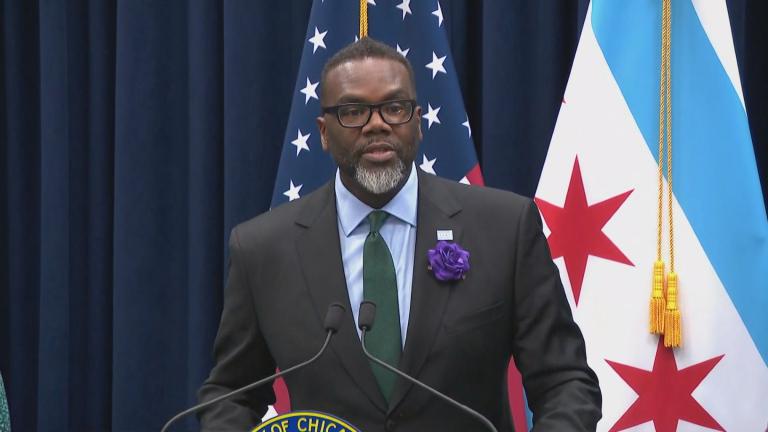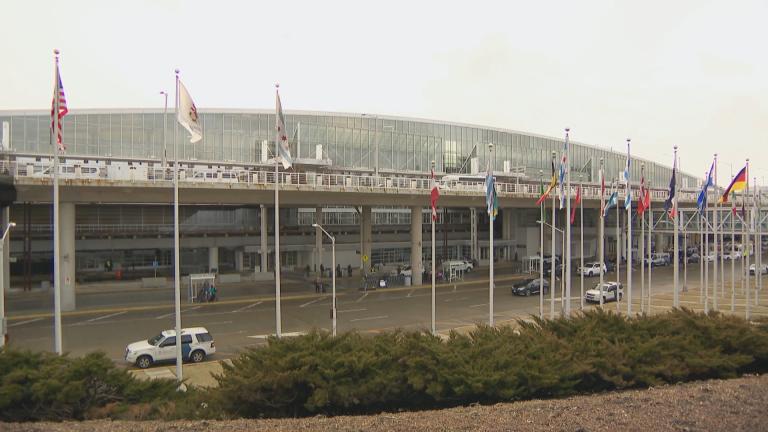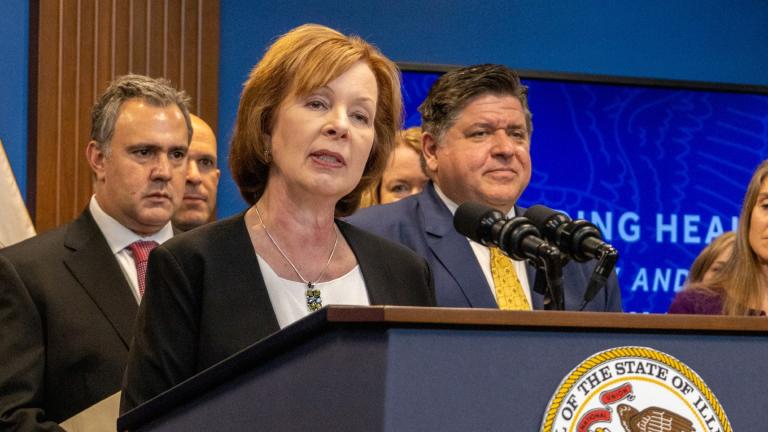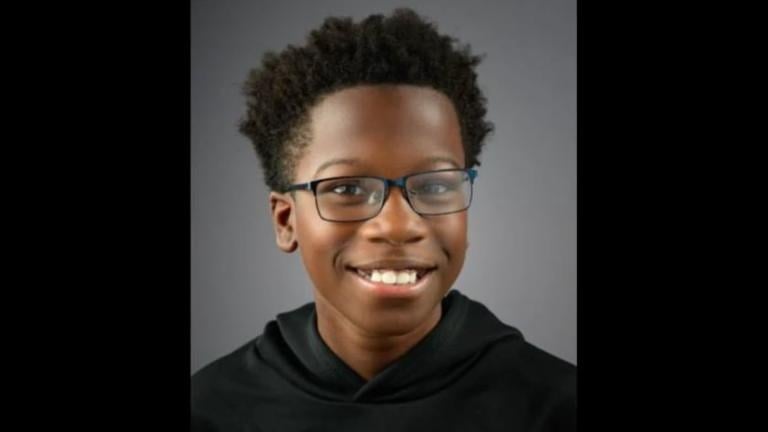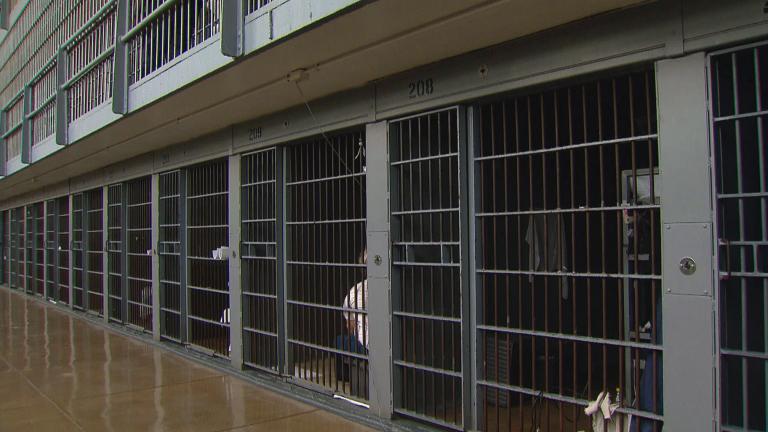A $39 billion budget. A public works program, worth roughly as much. Bringing a casino to Chicago and to four other Illinois communities, including near Waukegan and in the south suburbs. Becoming the first state legislature to legalize the sale and possession of marijuana.
Gov. J.B. Pritzker and Illinois lawmakers have a single day – until 11:59 p.m. Friday – to wrap up all of that, and more.
As of Thursday night, however, no spending plan had been introduced. There’s no deal on how to pay for large-scale infrastructure upgrades. And key negotiators couldn’t say where a gambling package is headed.
Early Thursday, Pritzker told reporters at an unrelated event that he was optimistic a gaming package would pass, though he gave no insight as to what exactly would be in it.
“I feel confident that we’re going to get a gaming bill. I know there’s still some conversation that’s gone on about sports betting in recent days. You know this is, I think, an important thing for the state to enact but what’s most important here is that we get a good bill,” he said. “And the legislators have been working hard, my office has been in those meetings. Both sides of the aisle have been engaged in those meetings. It’s been a bipartisan effort. But I feel pretty confident we’re going to get there."
Sticking points have included a battle between daily fantasy sports companies and River’s casino owner Neil Bluhm – the casino magnate is lobbying for brick-and-mortar casinos to get a head start on being able to offer online sports betting, and to punish DraftKings and FanDuel for operating in Illinois already.
Chicago Mayor Lori Lightfoot’s spokeswoman says her office has been in “constant conversations” but could not say whether Lightfoot would insist that a Chicago casino be city-owned.
Key budget negotiators say the fiscal year 2020 spending plan, which will take effect July 1, is not banking on the passage of gambling; revenues would instead be key to a large capital program.
Nor, they say, does the budget depend on Illinois legalizing marijuana, though that is close to passage: Late Thursday night a House committee advanced a broad package that would allow Illinois residents ages 21 and older to purchase and possess up to 30 grams of marijuana come January.
The state Senate approved the proposal earlier this week, and backers predict victory will come in the House on Friday.
The proposal, which would not permit adults to smoke or take weed in public and would allow only medical marijuana patients to grow cannabis plants at home, is designed to address racial inequalities fomented by the war on drugs, in part by giving extra credit to applicants seeking state licenses to grow or sell marijuana if the business is backed by individuals or relatives of individuals who had previously been punished for low-level pot possession.
“This is an opportunity to hit reset on the war on drugs,” said sponsoring Rep. Kelly Cassidy, D-Chicago.
Illinois can’t have men in “pinstripe suits” making billions of dollars off of legal marijuana sales, when people – often minorities – have been penalized and made criminals for selling ounces, said Rep. Jehan Gordon-Booth, D-Peoria.
The measure establishes a path for easily expunging the criminal records for offenders convicted of low-level marijuana crimes.
It’s a matter of “going back and writing the wrongs,” said Cook County State’s Attorney Kim Foxx, who was in Springfield to testify in favor of the measure (House Bill 1438) and had worked to negotiate the revised clemency process.
“Even a misdemeanor conviction has longstanding collateral consequences,” Foxx said, like employment and housing obstacles. “We must be responsible about legalization. I believe this bill does that. And I believe that the components related to expungements is the best that we could hope for, for the people of the state of Illinois.”
Should the General Assembly pass the marijuana measure, Pritkzer is sure to sign it into law.
Legislators have, or are close to sending, scores of other bills to Pritzker’s desk, including Senate Bill 687 (see tax rates on page 37), which would establish a new set of income tax rates – rates that would not take effect until 2021, and only if Illinois voters in November 2020 ratify an amendment to the state constitution that would allow for income to be taxed at a graduated rate.
Democrats say passing the new rate table this early will help to assure voters as they decide whether to back the constitutional change.
Joint filers with incomes of $250,000 or less would see their tax rate slightly decline; joint filers with incomes topping $1 million would see their tax rates jump from the current rate of 4.99% to 7.99%.
But Republicans say these are merely “teaser” rates during what’s sure to be a hard-fought campaign on the amendment, which are sure to spike in the future.
“This is just a poorly structured package. It gives no guarantees to the taxpayers. It’s a huge tax increase across the board,” said Rep. David McSweeney, R-Barrington Hills.
Meanwhile, Cook County Assessor Fritz Kaegi saw a bill stall that he had described as crucial to his ability to improve the flawed process for determining the value of commercial properties. Business groups had fought against Senate Bill 1379, arguing that they should not have to share sensitive information.
Follow Amanda Vinicky on Twitter: @AmandaVinicky
Related stories:
Illinois on the Precipice of Legalizing Marijuana
Spotlight Politics: Fireworks in Chicago and Springfield
Illinois House Passes Expansive Abortion Rights Bill
Democrats Put Graduated Income Tax Question to Voters

